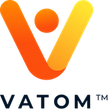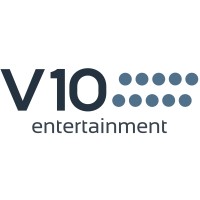
Resource Management & Productivity
What exactly is resource management and how does it benefit your company’s productivity? First, let’s define resource management as a method of identifying, strategically planning, allocating, and monitoring ALL of your company’s resources. These resources include your people, your equipment, your finances, and even your time spent on activities.
At Critical Connexion, we have found that resource management and productivity go hand-in-hand. That is, when you are identifying resources, strategically planning how they are allocated, and then monitoring their success, you can maximize the productivity of your employees, the effectiveness of your equipment, and the proficiency of your company’s overall performance. That way, you are achieving your company’s overall goals in the most efficient way possible, while also saving time and money by reducing waste.
Although there are many ways to connect resource management to productivity, you can start by reviewing the following:
- Compile what resources will be needed for a project (people, skills, budget, technology, etc.).
- Mobilize your team by communicating with those who have the specific skills you first identified and then determine if you need to bring anyone else in to fill any holes.
- Monitor the use of resources for effectiveness, efficiency, and forward progress.
These steps are the basics of resource management, but let’s delve even deeper into the importance of resource management and some specific techniques you can start implementing into your own company.

The Importance of Resource Management to Your Company
Have you ever felt like your employees are wasting precious time and energy when working and completing projects? Do you feel your employees are overworked, disengaged, or simply exhausted? If the answer is yes and yes, you are not managing your resources effectively.
Resource management is imperative to project management, as it reduces the time spent through proper planning and the overuse (or even abuse) or resources through allocation, utilization, and forecasting.
Your resource management will not help productivity unless you have a close examination and review of a project’s schedule, planning, and timelines. With proper resource management, and the right data that illustrates how your resources are being utilized, you can review the following:
- An assessment of your employee’s skills: Who has the right skills for the project, who may need to be added to the project, and who is not needed or is having their time wasted by working on the project. It is important to remember that overutilized employees will probably become discouraged, frustrated, and exhausted.
- A specific plan and schedule: Without a detailed plan and schedule, you will not know what resources are available, needed, and used appropriately.
- Resource utilization: This is probably the most important step in resource management. Where are your employees committing their time, what resources are being allocated, and are these resources being allocated appropriately. Remember that resources are not just people; resources are also what people are using, from technology and tools to money spent.
- Resource allocation: Now you can identify the initiatives that take priority, whose skills are the best fit for the initiatives, and what resources should be used for the best productivity possible.
Be aware that none of these strategies will work unless you are in constant communication with your team. This includes periodic check-ins, whether daily or weekly depending on the intensity of the project, so that you are continuously monitoring their work and use of resources. If you find that things are going off-task or new information, issues, or problems arise that were not originally known in the planning state, you will need to re-calibrate your plan.
When your employees’ work and resource use are fully visible, you can schedule, plan, and manage the resources needed for specific projects more effectively. This also means you will have more control over the timing of the delivery of assignments and tasks within your company’s structure.

Resource Management Techniques for Improved Productivity
If you are just diving into the resource management pool, it may seem like an intangible goal to achieve within your company. Yet, the benefits certainly outweigh the work needed to properly plan projects, allocate human, technological, and financial resources, and monitor them effectively. Contrary to popular belief, resource management doesn’t need a large financial or time investment. Not only that, but once resource management is properly implemented, you will more than likely start seeing the benefits immediately.
Proper resource management isn’t just about saving time and money. We discussed earlier that overutilizing your employees may make them frustrated and discouraged with their work. This disengagement connects directly to productivity, as employees that feel overwhelmed and disengaged will result in a decrease in productivity (and possibly poor performance). So, let’s dive into some specific techniques to get you started so that you have happy employees along with saving time and money.
- Resource Allocation
We’ve already discussed how efficient resource management comes down to efficient people management, which is why resource allocation is more than just allocating resources to your team and hope they are used appropriately. Resource allocation first contemplates the skills each person brings to the table and then allocates resources appropriately based on those skills.
Once you have an allocation report of your team’s skills, then you can use this data to strategically allocate resources. This guarantees each team member will have the right tools for the right project. Not only that, but effective resource allocation will also reduce waste and costs by preventing the overallocation of resources and the under-utilization of efforts.
- Resource Utilization
Resource allocation is directly connected to resource utilization because you have acquired a transparent view into your team’s capacity to use resources effectively over time.
What resources are being over-utilized? What ones are being under-utilized? Answering these important questions using data from the proper utilization reports will save money and improve efficiency because your team’s workloads are manageable and directly connected to their individual skills.
- Resource forecasting
Effective resource management means planning and forecasting the future. That way, you can create more efficient plans for tasks and projects which, in turn, will result in better control, organization, and efficiency.
Resource forecasting also helps with better decision-making and job control because your managers have the right data and insights available to make informed decisions. This could be about what resources should be allocated in the future, strategic planning of projects, and even what projects should be prioritized over others. This would undoubtedly lead to better control over projects and tasks.
How can you start your resource forecasting journey? First you should analyze your company’s historical data and then compare this data with trends in the market. This will help you make future projections, and identify any potential conflicts, which will help you estimate how much time is needed for future projects and what resources will be required. Remember, resources management means planning ahead to ensure your resources are properly balanced with both current and future projects.
Getting Started with Resource Management
Implementing the steps and techniques we discussed above isn’t difficult and just takes strategic planning and organization. There will be challenges with resource management, from trying to set the appropriate expectations of both your employees and projects, to managing your resource capacity versus the time demands of those involved in current and upcoming projects.
However, with the proper resource data you can understand the roles of your employees, the skills they have, and how they can complete projects in the most efficient way possible.
About Critical Connexion:
Critical Connexion is a distinguished business management & consulting firm that focuses on leveraging a foundation of leading finance, HR management, strategic sourcing, risk & operations experts to accelerate brand success for clients.
We specialize in navigating the evolving landscape of corporate growth by adeptly addressing changing systems, processes, and people requirements. Recognizing the substantial nature of technology and changing business needs, we ensure that these resources are directed with foresight and expertise. We are your extended partners for business growth, scaling seamlessly and brand elevation.
Contact Us:
Ph: 213-798-6676
Email: [email protected]















